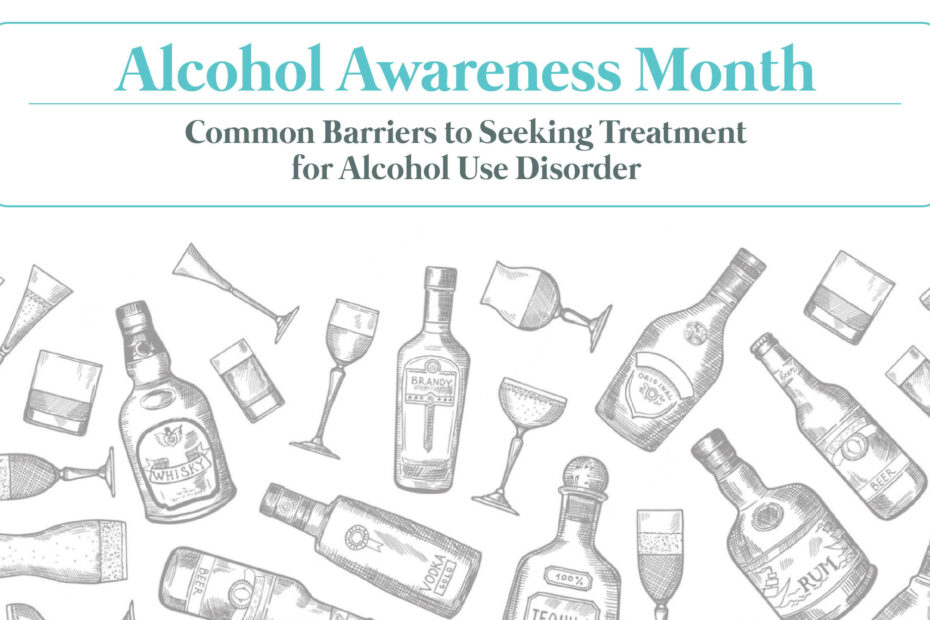“Sponsored by the National Council on Alcoholism and Drug Dependence (NCADD), Alcohol Awareness Month encourages community organizations to host events that increase public awareness and educate people about the treatment and prevention of alcohol use disorder. This year’s theme, “For the Health of It: Early Education on Alcoholism and Addiction,” can be incorporated into the coalition’s April outreach activities and campaigns.”
Defining alcohol misuse and alcohol use disorder
Alcohol is one of the most commonly used (and misused) substances in the U.S. In 2019, 25.8% of people aged 18 and older reported binge drinking in the past month, 85.6% of people reported drinking alcohol at some point in their lives, and 14.5 million people aged 12 and older had an alcohol use disorder (AUD). AUD is the clinical term for alcoholism or alcohol addiction, according to the National Institute on Alcohol Abuse and Alcoholism (NIAAA).
Alcohol addiction or alcohol use disorder (AUD) is a chronic medical condition that affects the brain and body. It occurs when individuals cannot cut back their alcohol intake or quit drinking despite the negative consequences on their lives and others. Alcohol use disorder affects every aspect of an individual’s life, including social life, personal life, and professional life. It can often result in legal troubles, broken relationships, job loss, financial hardships, and emotional and mental turmoil.
Stigma
Like other substance use disorders (and mental health disorders), our society holds a significant stigma against alcohol use disorder, a massive barrier to admitting you have a problem and seeking treatment. Stigma leads society to falsely believe that alcohol use disorder is a choice, weakness, or moral failing. This belief puts all the blame on the individual struggling with alcohol use disorder, which is both inaccurate and dangerous. Education is a crucial part of fighting stigma. Many individuals do not understand that addiction is a disease caused by changes in the brain’s chemical structure. Therefore, educating the public on addiction while encouraging compassion instead of judgment can help fight against stigma and break down this barrier to treatment. Other ways to eliminate the stigma associated with alcohol use disorder are:
- Talk about alcohol disorders openly and frequently.
- Avoid using stigmatizing language such as “addict” and “druggie.” Educate healthcare professionals about addiction.
- Treat each individual who is struggling with compassion and empathy.
Readiness for change
One of the essential components to successful addiction treatment for alcohol use disorder and other substance use disorders is an individual’s readiness to change. According to an article in Alcoholism Treatment Quarterly, readiness to change is made up of three components: motivation, willingness, and ability to change. Readiness to change has to be the priority for an individual going through treatment for an alcohol use disorder. If the individual is not willing, motivated, or able to put in the work to change their habits, then this will be a considerable barrier to treatment. Ultimately, if the individual is not ready to change, they will not. They will keep repeating the same behaviors until they put forth an honest effort to change the patterns that led to their alcohol use disorder.
Attitude/mindset
Many individuals who struggle with an alcohol use disorder may be in denial that they have a problem. As a result, they may be defensive, ignore the warning signs, and isolate themselves from loved ones trying to help. An individual may also have feelings of shame, guilt, fear, and cynicism. Feelings of guilt can cause one to lose hope in themselves and their future. Individuals may feel so guilty that they do not want to talk about getting help because they feel bad about the stress their alcohol addiction has placed on others. They may even believe they do not deserve to enter into recovery. Fear of giving up alcohol and potentially experiencing painful withdrawal effects can be a huge barrier to treatment. Many individuals may question what their lives will be like sober or whether recovery is worth all effort. The fear of entering into recovery to forge a path of new healthy beginnings can hold many back from seeking treatment. Cynicism is another barrier to treatment that relates to mindset and attitude. Many individuals may not trust healthcare professionals, insurance companies, or treatment facilities and may not believe that treatment can be beneficial. This often stems from the lack of trust within the individual, as many individuals who struggle with addiction have problems trusting themselves and others.
Financial
Healthcare in the United States is expensive, and recovery treatment programs are no different. Financial barriers to treatment for alcohol use disorder are huge. Many individuals are unsure how to navigate their insurance coverage, may not know how to pay for rehab, or are hesitant to go into debt to seek professional treatment. As a result, many individuals choose not to seek treatment out of fear they cannot afford it. However, most insurance plans cover some aspect of addiction treatment. There are government assistance programs, scholarships and grants, and state-run treatment facilities that can help ease the financial burden. Additionally, many reputable treatment centers may offer financial help or payment plans. Figuring out how to pay for treatment for alcohol use disorder is incredibly important, and most treatment centers have professionals to help you navigate this step.
Structural
Missing work, not having transportation, having co-occurring mental health disorders or underlying medical needs, or having unique treatment needs such as disabilities or being in the LGBTQ community are all structural barriers to seeking treatment for an alcohol use disorder. These barriers can be challenging, but it is important to find reputable treatment centers that can cater to your specific needs, whether the length of stay, co-occurring disorders, disabilities, or a program specializing in treating the LGBTQ community. When researching treatment centers, it is essential to be honest with yourself about your needs and communicate these clearly to your potential treatment center to ensure that it is a good fit.
About AKUA Mind and Body
AKUA Mind and Body is a full-service treatment center that provides residential treatment, partial hospitalization, intensive outpatient treatment, outpatient treatment, and virtual treatment to both men and women struggling with a substance use disorder, dependency, a mental health disorder, or both (co-occurring disorder). AKUA Mind and Body provides compassionate, evidence-based treatment to all individuals and families. We combine evidence-based medications and psychotherapy approaches with holistic therapies such as meditation, yoga, and equine therapy, as we believe in treating the mind, body, and spirit.
Our clinical staff and ancillary treatment teams take great pride in the care that we provide to our clients and their families. From intake to discharge, we believe in treating the client as an individual and not just treating the disorder. As a result, we provide individualized treatment plans for every client. We offer our treatment services across many locations in California, including Orange County, Newport Beach, San Diego, and Sacramento.




